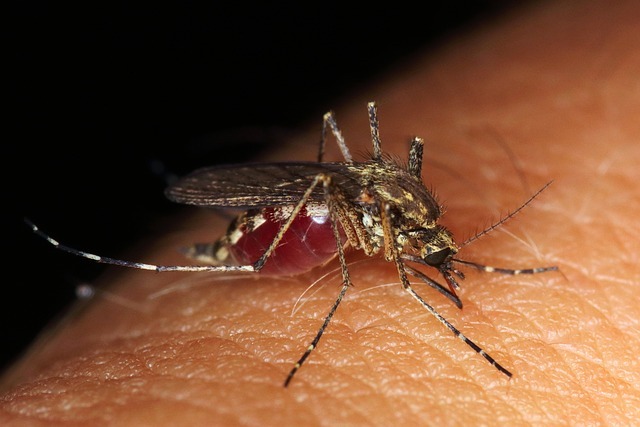Exploring the great outdoors can be an exhilarating experience, connecting us with nature in a profound way. However, the wild comes with its fair share of challenges, and one such challenge is dealing with insect bites and stings. These tiny creatures, though small in size, can pack a punch that turns a pleasant hike into a discomforting ordeal. In this guide, we’ll delve into effective strategies for handling insect encounters in the wilderness.
Table of Contents
ToggleUnderstanding the Buzz
Mosquitoes
Mosquitoes are ubiquitous in the wild, and their bites can be more than just annoying; they can transmit diseases like malaria and Zika virus. To minimize their impact, wear long-sleeved clothing and use insect repellent containing DEET. Mosquitoes, the tiny assailants of outdoor tranquility, go beyond being a mere nuisance. As we embark on an exploration of the strategies to outsmart these buzzing adversaries, a deeper understanding of their habits and the risks they pose becomes paramount.
1. The Tiny Menace
Mosquitoes, specifically Aedes aegypti, are not just pesky insects; they’re formidable disease vectors. In our quest for bite-free adventures, unraveling the mysteries of these miniature menaces becomes the first line of defense.
2. The Malaria Connection
Delve into the significant role mosquitoes play as carriers of diseases, notably malaria. By comprehending the stakes involved, we can better appreciate the importance of safeguarding ourselves from these buzzing vectors, especially in regions prone to mosquito-borne illnesses.
3. Dressing for Success
Guard yourself against mosquito attacks by mastering the art of strategic dressing. Learn how to minimize exposed skin, turning your attire into a barrier that significantly reduces the chances of becoming a mosquito’s next meal during your outdoor exploits.
4. DEET, Picaridin, or Oil of Lemon Eucalyptus?
The realm of mosquito repellents is diverse, featuring DEET, picaridin, and oil of lemon eucalyptus. Uncover the advantages and disadvantages of each, empowering yourself to make an informed choice that aligns with your needs and preferences.
5. Nighttime Tactics
Nocturnal mosquitoes pose a unique challenge. Explore effective strategies for repelling these buzzing adversaries during your nighttime escapades, ensuring your outdoor experiences remain serene even after the sun sets.
6. DIY Mosquito Traps
Shift the balance in your favor with DIY mosquito traps. Discover simple yet effective methods to diminish the mosquito population around your camping or outdoor area, fostering an environment where you can enjoy your adventures without constant mosquito interruptions.
7. Beyond the Itch
For some, mosquito bites trigger allergic reactions beyond the typical itch. Gain insights into recognizing and managing mosquito allergies, enabling a more comfortable outdoor experience for those susceptible to heightened reactions.
8. Citronella Magic
Citronella, often hailed as a natural mosquito repellent, warrants a closer look. Delve into the scientific aspects of citronella and discern whether it stands as a magical solution or remains a myth in the ongoing battle against mosquitoes.
9. Mosquito Nets
Planning a camping expedition? Explore the myriad benefits of incorporating mosquito nets into your outdoor gear. Ensure peaceful and uninterrupted nights by creating a protective barrier against mosquito bites while enjoying the serenity of the great outdoors.
10. Mosquito-Proof Your Home
Mosquitoes don’t limit their invasion to outdoor spaces. Learn invaluable tips for mosquito-proofing your home, creating a haven that remains free from the constant annoyance of buzzing interruptions. By implementing these straightforward measures, you can ensure a comfortable and bite-free living space.
In the intricate dance with mosquitoes, mastering maneuvers to outsmart their buzzing advances is not just a strategy; it’s a necessity. Armed with insights into their habits, the risks they pose, and effective countermeasures, we can embark on outdoor adventures with confidence, knowing that we’ve minimized the chances of becoming a mosquito’s next target. May your journeys be filled with the wonders of nature, free from the irritation of mosquito bites.
Ticks
Ticks are stealthy creatures that latch onto their hosts, potentially transmitting Lyme disease. When venturing into tick-prone areas, tuck your pants into your socks and conduct regular tick checks.
The Sting Operation
Wasps
Encountering wasps can be a painful experience. If stung, avoid swatting, as it may provoke further aggression. Instead, calmly and slowly move away from the area. Use a cold compress to alleviate pain and swelling.
Bees
Bees play a crucial role in pollination, but their stings can be painful. If stung, gently remove the stinger with a tweezer, wash the area, and apply a cold compress. Be cautious of allergic reactions, and seek medical attention if necessary.
Biting Back
Calamine Lotion for Itching
Calamine lotion is a tried-and-true remedy for relieving itching caused by insect bites. Its soothing properties provide instant relief, making it a must-have in your wilderness first aid kit.
Antihistamines
In some cases, insect bites can trigger allergic reactions. Having antihistamines on hand can be a game-changer, reducing itching and swelling. Consult a healthcare professional for personalized advice on dosage and usage.
Natural Remedies
Nature provides its own solutions. Aloe vera gel is renowned for its soothing properties, while tea tree oil possesses natural antibacterial qualities. Applying these remedies can aid in reducing inflammation and preventing infection.
Preventative Measures
Dress Strategically
Wearing the right clothing can be your first line of defense. Opt for light-colored, long-sleeved shirts and pants to minimize exposed skin. Tucking pants into socks adds an extra layer of protection against ticks.
Choose the Right Repellent
Not all insect repellents are created equal. Choose one with DEET, picaridin, or oil of lemon eucalyptus for maximum effectiveness. Always remember to reapply as directed, especially if you’re sweating or swimming.
Stay In the Know
Being aware of the local insect population and their peak activity times can help you plan your outdoor adventures more intelligently. Avoiding peak insect hours reduces the likelihood of bites and stings.
Conclusion
Navigating the wilderness requires more than just a sense of adventure; it demands preparedness. When understanding the types of insect bites, having a strategy for immediate relief, and implementing preventative measures, you can fully enjoy the beauty of nature without the persistent itch of insect encounters. So, pack your essentials, be mindful of your surroundings, and embark on your outdoor journey with confidence—nature’s wonders await, ready to be explored without the nuisance of insect bites and stings.







